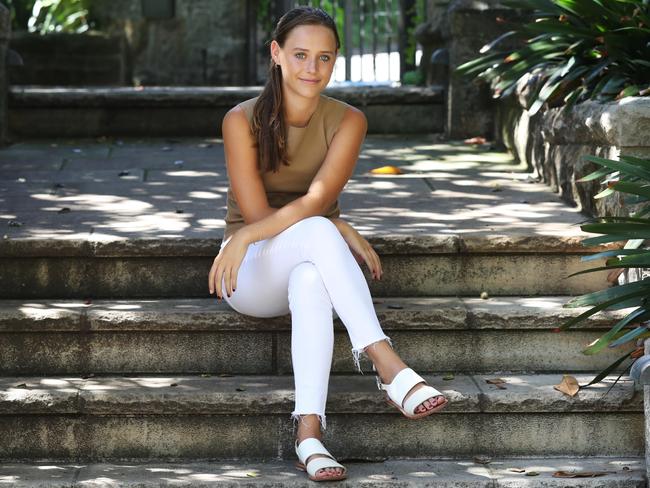People suffering eating disorders advised to ditch social media as it may intensify the illness
PEOPLE battling crippling eating disorders are being trained to ignore social media in a bid to avoid unrealistic imagery that can intensify their illness.
NSW
Don't miss out on the headlines from NSW. Followed categories will be added to My News.
PEOPLE battling crippling eating disorders are being trained to ignore social media in a bid to avoid unrealistic imagery that can intensify their illness.
With issues of body dysmorphia an increasing problem, specialists are including “social media literacy” programs as part of the treatment for patients with anorexia and bulimia, and often encouraging them to quit Facebook and Instagram altogether.
Under the programs, patients are also taught how to recognise “photoshopped” pictures and unfollow accounts that are “triggering” their illness.
Centre for Integrative Health director Dr Kiera Buchanan, who specialises in the treatment of eating disorders, said one of the first things she does with patients is discuss who they are following on social media.


“What we teach is social media literacy, we talk about whether they are following people who are healthy for them and what the effects are when they look on social media,” Dr Buchanan said.
And she said an important factor was learning to recognise online images were often not representative of real life — meaning in some cases a social media “detox” was necessary.
Body Positive Australia director Sarah Harry, who treats people suffering with a range of eating disorders, said she encouraged people to follow social media accounts that presented “a range of different body types”.
MORE: Eating disorder videos are saving lives
MORE: Why half an hour of Instagram will make you hate your body
MORE: First national police for treatment of eating disorders announced
She warned accounts promoting dieting and weight comparison — such as those of popular fitness gurus including Ashy Bines or Kayla Istines — should be unfollowed.
“Even if you know an image is airbrushed, it can play with your brain and be easy to internalise,” Ms Harry said.
North Sydney psychologist Mitchell Howarth said some accounts could feed into an obsession with perfectionism, which is why he encourages patients struggling with eating disorders to limit their use of social media.

“It can feed into the warped perceptions, so it’s important to talk about how much it is contributing to their dissatisfaction,” Mr Howard said.
“If someone feels like social media is problem they should experiment with a detox and see how often they then find themselves obsessing over their appearance.”
Butterfly Foundation chief executive Christine Morgan said it was including social media literacy in its schools programs to teach youngsters how to recognise how images were altered and manipulated.
“We try and teach recognising how images are digitally enhanced and encourage young people to follow accounts that promote more than just what people look like,” she said.

Hunters Hill’s Siena Armati, 20, underwent treatment for anorexia at California’s Monte Nido facility where she had no access to social media.
“I think that it is so easy to fall into a habit of constantly comparing yourself with others and wanting to look like someone else, and sometimes you don’t even realise that you’re doing it,” she said.
Butterfly Foundation: 1800 33 4673


